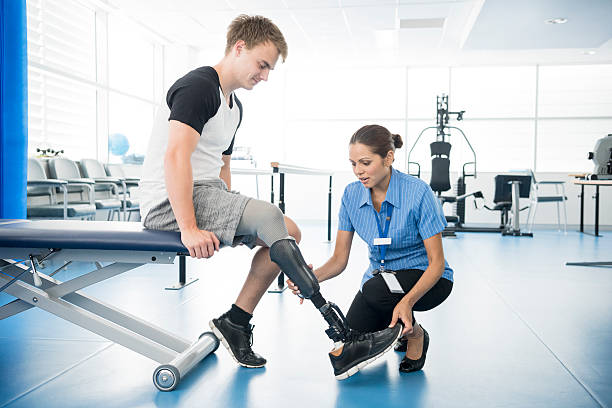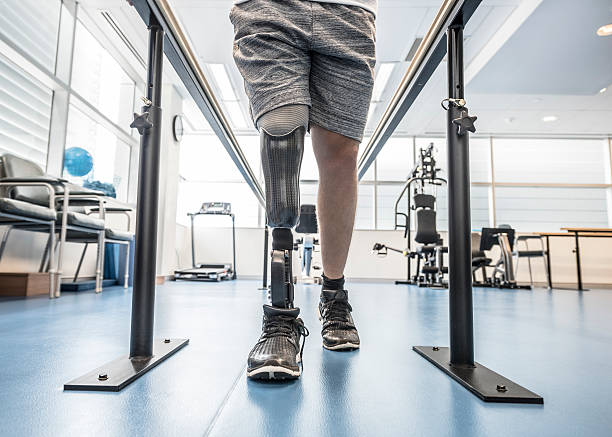Prosthetics

As a young man, I once considered getting into the engineering of prosthetics. I was intrigued by the prosthetics that were shown in films like Star Wars and the Six-Million Dollar Man. Though we are still a long way from those marvelous devices, I am still fascinated by the creation of prosthetics. Though I am fascinated by the devices, I am thankful for the fact that I still have all of my limbs and do not have to use a prosthetic device.
Many people who have all of their limbs, do know what it means to lose a precious part of themselves when they lose a beloved partner, family member, or friend.
The older I get, the more I know people who have had close family members, friends, and/or partners die. I also have had close people die. When my mentor of 20 years passed away, I was at a loss for words and I was hurting too. But I wanted to tell his spouse of 60 years something that would ease her pain. I am not a psychologist or a counselor of any kind, but I thought of something that I would like to share with her. The more I think about it, the more I attribute it to inspiration as it seemed to be given from on high.
If it helps you, great. I am not offering this as a substitute for counseling or reading a good book on grieving or anything like that. These ideas were given to me through inspiration and my own education.

The first point is that I believe that the closest to the feeling of losing someone is losing a limb. Just like losing a limb, you will never be able to replace the person that you have lost through death or end of the relationship or whatever. You may feel a phantom person there for a long time, just like feeling a phantom limb. However, it will take a lot of time to realize that the person or the limb is just not there. A person that loses a hand or an arm cannot tie their shoes or button their shirt the same way. All one can do is re-engineer their lives and find new ways of doing things.
The second point is that there is no prosthetic that will replace the person that is gone. A person can get a prosthetic arm or leg and they may even be able to walk or do some of the things they used to do. However, it is not the same. It does not feel the same and all the versatility is just not the same. Similarly, when a person leaves, for whatever reason, you can try to fill the gap with someone or something and it may work for a while, but it cannot replace what is missing. If it were the same, I would suggest that the person who left meant less to you than you thought. All you can do is pick up the pieces and keep moving forward in faith, hope, and love.
The third point is that you have to live for them, even after they are gone. Being needed can be like a drug that we become addicted to. Those of us who spend many days, weeks, months, and or years caring for someone are usually devastated when that person passes or leaves. However, you need to realize that your work for them is not done. You need to get up and take care of yourself, for them and allow yourself time to grieve the relationship loss, for whatever reason it was lost.
You need to teach yourself how to live again and with time and a little help from above, you will get there.
Psalm 147:3 He heals the brokenhearted and binds up their wounds.
————————————————————————————————————–W.







No Comment